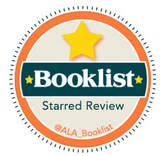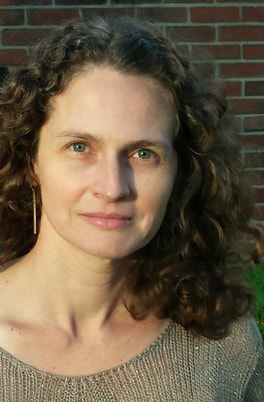 What is the name of the piece that you have in Grabbed? Grope What was the inspiration for your piece? What compelled you to write it? I have been a public school teacher for 24 years. Schools are still very stuck in the 19th century. They have an authoritarian-loving mode that's tied to the rigid, factory-like structure. Many young people are lost, unheard, and unprotected in schools. This poem is also about the way that young people engage with persecutors--often with empathy and identification. For children, there is always that question of why they are chosen; usually it's because there is something vulnerable or neglected in the child's circumstance. It's confusing because attention can feel good to a child who already feels invisible. As a writer, do you feel obliged to share difficult experiences? Difficult (especially unspoken) experiences often become poems; poetry as an art form allows for the language that exists outside of everyday experience. Shame often lacks a language. Of course, poetry is part fiction; our narrators are part of us, but no one should assume they are us. And some experiences always seem to elude being written about directly. Reading has healed and empowered me since I was small because of its intimate nature; it offers access to the private imagination of someone else that day-to-day life does not provide. To create an entire anthology on a taboo subject is very important. Nothing like it existed when I was a young woman. When you can't read about experiences, you believe yourself to be alien, isolated by your very existence. Jessica Cuello is the author of Hunt (The Word Works, 2017) and Pricking (Tiger Bark Press, 2016). She has been awarded The 2017 CNY Book Award, The 2016 Washington Prize, The New Letters Poetry Prize, a Saltonstall Fellowship, and most recently, The New Ohio Review Poetry Prize. Her poems can be found in American Literary Review, Plume, On the Seawall, Missouri Review, Tinderbox, and Los Angeles Review. She is a poetry editor at Tahoma Literary Review.
0 Comments
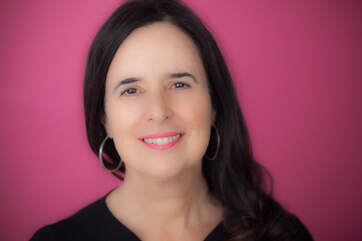 What is the name of the piece that you have in Grabbed? The Man with the Violin Case What was the inspiration for your piece? What compelled you to write it? I’ve never forgotten the real-life experience that inspired my story. It has haunted me to the present day. Sometimes you carry experiences like that your whole life, not knowing if they’re worth telling, let alone writing them down. Somehow it felt right to share the story now in the hope that it would be meaningful in the context of our anthology. What compelled you to submit your work for this anthology? Was it a difficult decision? I believe in the importance of this anthology and knew that all of you amazing editors (Richard, Cary, Nikki, and Elisa) would create a powerful and necessary book. I admit that I was initially concerned that my story wouldn’t fit the mold of a sexual harassment story, since in the end “nothing” really happened, meaning I wasn’t physically touched or molested or “grabbed.” But as I wrote, I realized that the story is relevant in exploring how harassment can take on numerous forms and that creating fear and terror in a woman’s mind is another way to cause harm and make her feel vulnerable and unsafe. Why did you choose this particular form or genre for this piece? I decided to write the piece as a mini-memoir essay. I’ve always loved the genre of the personal essay and in this one I blended in elements of an extended panic attack, so the temporality of the story takes place in one very intense moment but also moves back and forth in time to a childhood in Cuba and the present tense of a young woman coming uneasily of age in New York. Can you speak to the evolution of writing your piece? How long did it take you to write this piece, including revision? I think it took about two to three months, between the very first version and then the revisions. I was fortunate to have Nikki as my editor. She asked me sharp questions that pushed me to go deeper into the emotions I felt at the time and the emotions that the memory of the encounter still provokes in me. As a writer, do you feel obliged to share difficult experiences? Why? I can’t say I always share difficult experiences on the page, but I often do. I think as writers we are like archaeologists, excavating our emotional history, digging up the many layers of the past and the present, and seeing how all of that comes together in ways we can’t always articulate until we sit down to write our stories. We find broken pieces, fragments, of our lives that we’ve carried around and then when we write we try to recreate the context in which those pieces, fragments, were once whole so we can understand better what wounded us and what we need to do to heal. What do you feel the impact of the #MeToo movement has been on your work, if any? I have been a feminist ethnographer for many years and involved in bringing attention to the work of women anthropologists who have been erased from the canon. Throughout my writing life, I’ve turned to women writers, especially Latina writers, for models of how to be a strong woman in a man’s world. The #MeToo movement has emboldened all of us who have been on these quests to continue, to speak up more, and not be afraid. What would you say to another writer who has been uncomfortable or silent about their experience? How can they begin to share their experiences? The first step is to share their experience at the kitchen table with a trusted friend, or over the phone or Facetime, if that’s not possible. I think many stories begin as a confidence shared with someone who will listen and keep your secret, if that’s what you want. Having told the story and given it breath, you can then work to make it come alive on the page. How can a publication such as Grabbed help to empower or heal readers? If a reader can see themselves reflected in even one story in Grabbed, that is an important way to begin the healing process. And if there are several stories readers can identify with, then there are many ways to be empowered and to heal holistically. Ruth Behar was born in Havana, grew up in New York, and has also lived in Spain and Mexico and returned to Cuba often. She is an acclaimed writer of poetry, memoir, children’s fiction, and travel books that explore her return journeys to Cuba and her search for home. She is the author of An Island Called Home: Returning to Jewish Cuba and Traveling Heavy: A Memoir in Between Journeys. Her poems are collected in a bilingual edition, Everything I Kept/Todo lo que guardé, and her documentary, Adio Kerida: A Cuban Sephardic Journey,is distributed through Women Make Movies. She won the Pura Belpré Author Award for her debut middle-grade novel, Lucky Broken Girl, which explores her experience growing up Cuban-American while confined to a body cast. Her new middle-grade novel, Letters from Cuba, a work of historical fiction, is inspired by her maternal grandmother’s escape from Poland to Cuba on the eve of WWII. Ruth was the first Latina to win a MacArthur “Genius” Grant. Other honors include a John Simon Guggenheim Fellowship and being named a “Great Immigrant” by the Carnegie Corporation. She teaches anthropology at the University of Michigan and lives in Ann Arbor. 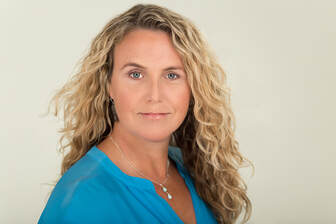 What is the name of the piece that you have in Grabbed? "Flashbulb Memory" What was the inspiration for your piece? What compelled you to write it? I wrote it when I heard about the term "Flashbulb Memory" as the way we remember trauma. I was young when I was assaulted and yet, I remembered everything single detail as if it had just happened yesterday. It was nice to finally have a term to understand why. What compelled you to submit your work for this anthology? Was it a difficult decision? I wanted to submit to this anthology the second I heard about it. What struck me the day of the Cavanaugh hearings was how universal our experiences are as women. And, how women of my generation spoke about what happened to us to each other, but we didn't report what had happened to us because it was so commonplace. I cried all the way to work that day listening to Dr. Ford bravely tell her story because I thought FINALLY someone is telling their story and it will be listened to. But, when her testimony was dismissed and Cavanaugh was appointed to the Supreme Court I felt betrayed. I felt like I will never be silent again. Why did you choose this particular form or genre for this piece? I chose to write it as a question and answer to mimic the police questioning I endured just days after the attack. Can you speak to the evolution of writing your piece? How long did it take you to write this piece, including revision? I have written many versions of this same poem. It wasn't until I learned about the term flashbulb memory that I felt like I understood how I wanted to approach it. As a writer, do you feel obliged to share difficult experiences? Yes. I often write my way through the most difficult parts of my life. In this case, I'm writing about my trauma because I don't want to be silent anymore. What do you feel the impact of the #MeToo movement has been on your work if any? It has had a huge impact on my work. I write about women whose stories have been suppressed by androcentric history. The #MeToo movement made me feel even more like the work I am doing is really important. What would you say to another writer who has been uncomfortable or silent about their experience? How can they begin to share their experiences? I think we tell our stories when we are able to tell them. I would encourage everyone to tell their truth if only because if we all tell the truth about what has been happening to us then things will begin to change. How can a publication such as Grabbed help to empower or heal readers? Readers will feel empowered to tell their own stories, to believe their stories will be listened to. Iris Jamahl Dunkle was the 2017-2018 Poet Laureate of Sonoma County, CA. Her newest poetry collection West : Fire : Archive will be published by Mountain/ West Poetry Series in 2021. Her other poetry collections include interrupted Geographies (Trio House Press, 2017) Gold Passage (Trio House Press, 2013) and There's a Ghost in this Machine of Air(Word Tech, 2015). Her biography Charmian Kittredge London: Trailblazer, Author, Adventurer is now available from the University of Oklahoma Press. Dunkle teaches at Napa Valley College and is the Poetry Director of the Napa Valley Writers' Conference. Charmian Kittredge London Trailblazer, Author, Adventurer is now available for pre-order. 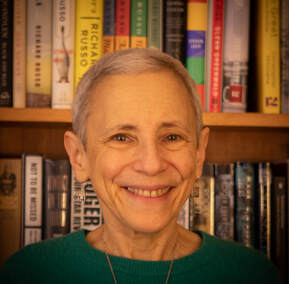 What is the name of the piece that you have in Grabbed? “Lesson” What was the inspiration for your piece? What compelled you to write it? I’m mostly a narrative poet, and this incident has a beginning, middle, and end, which I guess is why I wrote it–because of the nice narrative shape. In it, I fictionalize a real event that stayed with me because two shames are wrapped up in it: the shame of a thirteen-year-old who didn’t know how to ride a bike and the shame of the groping itself. Why did you choose this particular form or genre for this piece? I write poems for adults and novels for kids. It isn’t just that this incident isn’t for the age group my books are written for, it’s mostly that I go to poetry to explore my feelings, my understanding of my past and the present, and my relationship to the world. This poem goes to a lot of that, and it had to be a poem. As a writer, do you feel obliged to share difficult experiences? Why? I regard poetry as a place of freedom, as the perfect place for me to be imperfect. It’s hard to admit to being a victim. My real groper was a stranger. I was in Central Park in New York City with a friend from school. At the time, she didn’t realize what had happened and I didn’t tell her. I was too embarrassed. We’re still friends, and I told her only recently. What would you say to another writer who has been uncomfortable or silent about their experience? How can they begin to share their experiences? I’m not hopeful that sexism and the exploitation of women will end. But no headway will be made if writers remain silent. Silence is isolating. In silence, we believe that what happened to us happened to no one else and was our fault. A friend told me after the accusations against Harvey Weinstein that she was having lunch with three other women when the topic came up. In talking, they discovered that all four of them had been raped. How can a publication such as Grabbed help to empower or heal readers? It is exhilarating to find one’s own experience coming from someone else’s pen. When it happens to me I feel understood, sometimes for the first time.  What is the name of the piece that you have in Grabbed? Daughter, They’ll Use Even Your Own Gaze to Wound You What was the inspiration for your piece? What compelled you to write it? I was in a conversation with a group of women friends, talking about times we’d be accosted or assaulted by men. I brought up the subject of exhibitionism, because there are three times in my life when a man has exposed his genitals to me. I’ve always been curious about other women’s experiences with how frequently this occurs. The majority of the women (there were seven of us) had been the victim of exhibitionism. After this conversation, I kept replaying the three incidents, all very different both in their setting and in my reactions. The first time, I was a high school girl, in a library, and I felt exceedingly upset and violated. I didn’t tell anyone and didn’t know how to process what I’d been forced to see. The second time, I was with my friends, and we’d been drinking, and when the man exposed himself to us, we laughed, and the whole incident felt much less scary and traumatizing. And the third time, I was in grad school, and in a park, training for a half marathon. And when the man exposed himself to me, I just kept running at my same pace, determined to finish my training run and not give him the pleasure of seeing me look shocked or upset. In the weeks after the conversation, I kept thinking about two things. The first is, I realized I still had some processing to do. I think I was conflicted about my feelings of violation because I kept telling myself “No one touched you, you’re fine, it’s not a big deal” but at the same time I knew that violence had occurred and that I had been forced to experience something I didn’t want. The second thing I was thinking about is that the pattern of my reactions also conveys how sexual violence of any sort is an attempt to beat you down and dehumanize you, and it had worked in the respect that the third time my reaction was so much smaller than the first time, as if it’s reasonable to live in a world where this happens. Why did you choose this particular form or genre for this piece? I was thinking about the tidy box of the Shakespearean sonnet, a form I love—how there are three examples of a problem or situation, and a tidy couplet that resolves the problem or reverses the statement. So my piece became a secret deconstructed sonnet—three examples that don’t get reversed or resolved. The couplet show that the tidy box is broken, as the lesson of “what women know” gets reinforced. This couplet even rhymes. I don’t expect the reader to know what I’m doing with this deconstructed sonnet, but it was useful for me. Can you speak to the evolution of writing your piece? How long did it take you to write this piece, including revision? After I wrote the piece, I knew there was one more layer to what I wanted to do with it, and I realized that layer comes from the world outside the poem, the fact that we not only inhabit a world where violence is done to women but we inherit this world from our mothers. And I thought about my pre-teen daughter, and how chances are good that she too will experience some type of the ugliness and brutality that many women experience and then are blamed for. And that these three acts of violence were done to me merely because I have eyes. So in a revision I thought of the title, “Daughter, They’ll Use Even Your Own Gaze to Wound You.” How can a publication such as Grabbed help to empower or heal readers? Because women are often blamed for being the victim, they metabolize shame. But reading of others’ experiences reminds us we’re not alone, and together we can support each other and redefine “what women know.” Beth Ann Fennelly, a 2020 Academy of American Poets Laureate Fellow, is the poet laureate of Mississippi and teaches in the MFA Program at the University of Mississippi. She’s won grants and awards from the N.E.A., the United States Artists, a Pushcart, and a Fulbright to Brazil. Fennelly has published three books of poetry and three of prose, most recently, Heating & Cooling: 52 Micro-Memoirs, which was a Goodreaders Favorite and an Atlanta Journal Constitution Best Book. She lives with her husband, Tom Franklin, and their three children In Oxford, MS. https://www.bethannfennelly.com/ 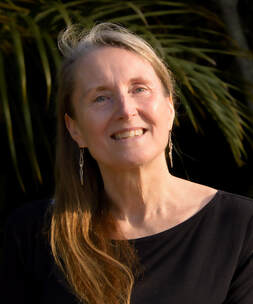 What is the name of the piece that you have in Grabbed? “When in Madagascar” Can you speak to the evolution of writing your piece? Since my experience was literally an attempted grab, I thought of it immediately. However, as the piece evolved, I realized that the moment was not worthy of mention amid the rape and abuse in a collection of this sort. The grab remained in my mind more as a curiosity than a moment of peril. Yet, Madagascar itself is indelibly stamped on my being, engulfed in emotion for those people that I could not help. My inability to make a speck of difference on such a scale is what I will keep forever, and sharing that became the importance of the piece. Though on the surface, my concerns might seem out of line with the purpose of this anthology, on a deeper level, relief of suffering is our shared hope. As a writer, do you feel obliged to share difficult experiences? Why? This is the first personal experience I have ever felt compelled to share. I thank you for the opportunity. Vicki Hendricks is the author of noir novels Miami Purity, Iguana Love, Voluntary Madness, Sky Blues, and Cruel Poetry, an Edgar Award Finalist in 2008. Her short stories are collected in Florida Gothic Stories. She currently lives in central Florida, the rural locale of her most recent novel Fur People. 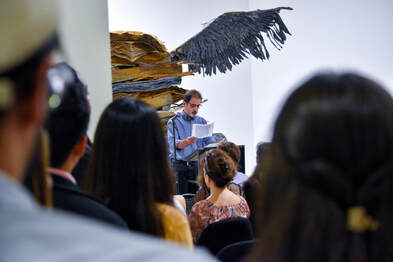 What was the inspiration for your piece? What compelled you to write it? That’s a good question! I can’t really say, to be honest. I do know the poem surprised me with its sudden clarity and shifts in perspective, and I do know I was intrigued by the fact that I didn’t fully understand its situation but instead saw the scene—and the woman—with striking vividness and an ache of truth. For many years, my writing-practice has entailed a few hours at the computer every morning, before I do anything else (except drink coffee), trying to capture something—some line or image or phrase—I can run with, so to speak, without “thinking,” until—if I’m lucky—I arrive somewhere that feels authentic. If I’m working in poetry, this process entails following that initial impulse within the limitations the line—its cadence mostly--imposes on my choices; if I’m working in prose, the limitations are the less rigorous impositions of the sentence and its syntax. I find that the limitations I impose upon myself are directly related to the discoveries I make. “Sky” felt immediately real to me because those discoveries felt new—to me and perhaps to others, too—and thus worth shaping and crafting. As far as possible, I try never to know what I’m going to write before I begin the process. So I guess, to (finally) answer your question: Though I must have been aching somewhere for people who have been lost, abused and abandoned as the woman in this poem is, the process itself was the poem’s inspiration. What compelled you to submit your work for this anthology? Was it a difficult decision? It’s been a while since I submitted the poem, but I suspect that, when I saw the call, I thought, maybe that “Sky” poem would sing for them. I’m glad it did, since at that point I had no idea whether the poem was any “good” or not—that is, I didn’t know whether it would communicate to someone other than myself. I don’t think it was a difficult decision, since part of the process of being a writer, and particularly a poet, is to send one’s work out into the world and hope it will make some connection. Of course it’s always gratifying to have one’s work accepted for publication; the difficulty, I think, comes with the fact that the majority of one’s poems—the vast majority, I think—will be turned down by prospective publishers, often many times. Every poet has experienced this, and it can be hard to believe in the value of one’s work, sometimes, in the face of that vast disinterest. So it takes a certain courage to submit! But as I said above, that’s integral to the process of writing with serious intent. Why did you choose this particular form or genre for this piece? Since I most often work in lyric poetry—that is to say, in small forms in which the line is determined by breath and cadence--it was natural for me to choose this form for the poem. Unlike many of my poems whose form is determined by a loose-form free verse, “Sky” is really a poem whose form was discovered in the breath, that is, in the rhythm of breath rather than heartbeat or some other more regular measure. This looser form allowed me to “leap” from scene to scene with greater ease than might have been possible had I used a tighter form, and I think (hope) it gave a certain openness to the poem’s overall feeling—particularly in the leap that leads to the last line. Can you speak to the evolution of writing your piece? How long did it take you to write this piece, including revision? As I remember, this poem came almost fully-formed in its first draft. Of course I revised, but that revision consisted mostly of listening carefully to the line breaks and the white spaces, to make sure I got the poem’s breath right, rather than the kind of “re-vision” in which the poem is cracked open and put back together in order to get to its marrow. To really read, really enter, any poem, one must breathe with the breath of the poet who wrote that poem. For the poet making a poem, capturing that breath can be an extremely difficult task, particularly in an open-form poem such as “Sky.” So part of the revision process consists of reading and rereading, listening carefully, making small adjustments and reading again—until all the moments in the poem are properly balanced and the marks that indicate that balance—line break, punctuation, white space—are organized precisely to hold the breath in place. As a writer, do you feel obliged to share difficult experiences? “Obliged” feels like the wrong word here, since I don’t feel “obliged” to do anything in writing except follow the paths that open themselves to me. Having said that, it’s a general understanding, I think, that writers and particularly poets are often drawn to writing precisely because difficult experiences have shaped a need to “say the unsayable,” to communicate what ultimately lies beyond language. I think this is largely true, certainly early in a writer’s development. And as I think more about your question, I realize that I can’t imagine a writer not drawn to exploring—and sharing--difficult experiences! The real question, I think, has to do with whether the writer locates herself only in her own difficult experiences or whether she’s able to find the means of opening herself to the suffering (and joys) of others. Perhaps a good writer starts in the first of these impulses and opens herself to the second. Furthermore, perhaps one quality we’re looking for in the best of writers is that empathic imagination by which the world is made larger. One wonders what discoveries we might make if we were able to open ourselves to the difficult experiences of all the world’s creatures, not only those of our fellow humans! What would you say to another writer who has been uncomfortable or silent about their experience? How can they begin to share their experiences? I think that a great deal of the best writing comes when a writer finds the courage to wrestle with those most uncomfortable of experiences. In fact, in many cases, that’s where we start; the very fact that one is drawn to writing brings music into that silence. I would try to get that uncomfortable writer to see that writing is a process of discovery, of digging deeper, and that by engaging in the process one might find a kind of healing, or at the very least a deeper response to that suffering, a way through it by digging down. I would also suggest that she find a community of other writers—people she trusts not to judge but to respond honestly—to read her work. Likewise, her response to the work of fellow writers drafts would empower her to greater confidence and sense of community. And the connection community provides—whether of friends, colleagues, fellow practitioners or readers whom we’ll never meet, is, after all, the point. Art makes the world larger to the extent that it forges community. How can a publication such as Grabbed help to empower or heal readers? The realization that we are not alone even in our aloness or solitude may itself be a source of healing. Reading about difficult experiences can be a source of greater empathy—toward others and toward oneself. Experiencing writers who have somehow found the courage to communicate difficult experiences in vivid, honest language, can give people the wherewithal to find that courage in themselves. On the most basic level, this act of sharing may give us the sense that we are less alone than we think. Again, it’s that sense of sharing and community. Michael Hettich was born in Brooklyn, NY, and grew up in New York City and its suburbs. He has lived in upstate New York, Colorado, Northern Florida, Vermont, Miami, and Black Mountain, North Carolina, where he now lives with his wife, Colleen. He has published over a dozen books of poetry and an equal number of chapbooks. His work has appeared widely in journals and anthologies. His most recent book of poems, To Start an Orchard, was published by Press 53 in 2019. Michael Hettich’s awards include several Florida Individual Artists Fellowships, a Florida Book Award, The Tampa Review Prize in Poetry, and the David Martinson–Meadow Hawk Prize, among others. He often collaborates with visual artists, musicians, and fellow writers. Hettich holds a Ph.D. in English and American literature from the University of Miami. For many years, he taught creative writing, composition and literature at Miami Dade College where he was honored with an Endowed Teaching Chair in Environmental Ethics. He has two grown children, Matthew and Caitlin, and a grandson, Owen Sharpe. His website is michaelhettich.com. 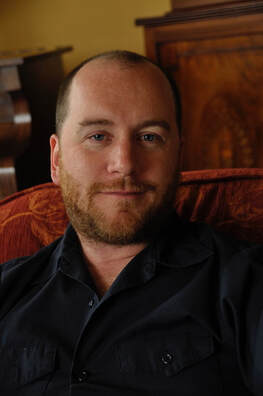 What is the name of the piece that you have in Grabbed? “One in Four.” What was the inspiration for your piece? What compelled you to write it? One in Four is an Irish charity that supports adults survivors of sexual abuse, offering legal advocacy and counselling services. This poem pays tribute to their amazing work. The name of the non-profit refers to a troubling statistic: According to an Irish Times article from 2018, “Current but outdated statistics state that one in four women and one in six men have experienced some form of sexual abuse.” Here is the link: The poem was part of a group of poems that I wrote between 2009 and 2012 and which was later published as a section of my first collection, Waiting for Saint Brendan and Other Poems (Salmon Poetry, 2012). Here is some background: In 2005, when I was 33, I started a counselling session by saying, “I think I was abused.” After the words left my mouth, it took seconds for almost 15 years of denial to crumble. I had always seen my “special friendship” with my abuser—a charismatic Benedictine monk / teacher from a prominent Sinn Féin family in Belfast—as “a relationship,” and “a romance,” and had hidden from myself the troubling and abusive aspects, of which there were many. (The grooming and abuse took place at an elite boarding school between 1989 and 1991 when I was 16-18). After reporting him to the school (he was “defrocked” / laicised by the Vatican and ejected from the school and the priesthood) and, later, facing the school in mediation, I used One in Four’s legal advice services to finally report him to the Irish police. Although the police were very supportive and presented a compelling book of evidence, along with my contemporaneous diaries detailing the abuse, The Director of Public Prosecution felt they did not have a case because, they said, I had “consented,” which is dark ironic. I was 16 when the grooming began, and just 17 when the physical part of it started, which was the age of consent at the time. I cannot help being left with the impression that the Irish legal establishment doesn’t understand how the grooming process works: how a young person is tricked into believing that it was something they initiated or wanted. What compelled you to submit your work for this anthology? Was it a difficult decision? If so or if not, why? Given the fact that the anthology is a #MeToo anthology, it felt appropriate to submit this poem, as it hinges on the lines “Until it can be said, / until I can say me too, / the crime will continue.” Was it a difficult decision? I think it is always difficult to make these experiences public, but it’s also important to step forward, both for myself and for others: as I say in the poem, “to hold space for those who can’t speak yet. / …Hold the line.” Here I’m thinking of the poetic line, but also of lines of battle. The line is formed by all those who have gone through this experience, but also all their allies; if they lock arms, then change will come. Why did you choose this particular form or genre for this piece? The subgenre of the book is, I think, located somewhere between confessional and neo-confessional modes: most of the poems follow Emily Dickinson’s suggestion to “tell the truth but tell it slant.” A lot of my poems about abuse in this book use metaphor to both protect the speaker but also to find an image that can give us greater access to an experience that is difficult to convey. However, this poem is more direct and political. Can you speak to the evolution of writing your piece? How long did it take you to write this piece, including revision? I can’t say how long it took me to write this specific poem. I think I wrote it quite quickly, perhaps in 2009 or so, and then revisited it while I was studying at NYU’s MFA in Creative Writing Program, where I received a lot of support from fellow students and teachers like Kimiko Hahn and Sharon Olds. I think it’s important to say that after I discovered I’d been sexually abused, it took me from 2005 until 2009 to write anything more than diary entries about those experiences, which constituted a form of Stockholm Syndrome (In Trauma and Recovery, Judith L. Herman talks about how sexual abuse can have much in common with the experience of being a hostage or a cult member, where the victim takes on the point of view of the abuser, which was true in my case. This kind of gas lighting constituted an abnegation of myself). Then between 2009-2012 or so, I started to find the images for it, and wrote around 40 poems about my experiences, some of which were published in the book. I don’t try to write about this subject or necessarily want to. It was forced upon me and I have to write it. That part of it can’t be changed, but I try to do something positive with the work and assist others. The activist part of it isn’t my goal at the moment of writing; but it is my goal at readings or when speaking about it. What do you feel the impact of the #MeToo movement has been on your work, if any? I think I experience #MeToo from the point of view of an ally. Although I have experienced sexual violence, given that this movement is about women who are speaking what has happened to them at the hands of men who attempted to silence them, I think it is important for men to be careful and sensitive and to not attempt to take centre stage. I could be wrong in this—perhaps I could have stepped forward in a more public way and found a more direct sense of community with other survivors, but I was burnt out after the various ways I had already fought my abuser and was trying to make living well my best revenge. Although he is not on a sex offender’s list, up to this point, I have unfortunately exhausted direct legal options. More ways might come through writing. Indeed, two-thirds of my next book, Crash Centre, is about the experience and is more direct than my first collection. Finally, I don’t think #MeToo has impacted my writing itself, but it certainly inspires me as a person and as a survivor. What would you say to another writer who has been uncomfortable or silent about their experience? How can they begin to share their experiences? All I can say is that writing about it for yourself (and / or for publication) can be very helpful and therapeutic. I would suggest seeing a therapist while accessing these experiences, and taking it slowly. My experience has been that writing about it one poem at a time is a healing process, though the healing can be fierce. At the time of writing I was often flooded with the past in a post traumatic sense, and was lucky to have a good therapist and a community of writer friends who were either doing something similar or who were open to my process. My goal in tackling the subject is to start from a (semi-) therapeutic place, and to end with a work of literature, hopefully! What was really helpful was, in each poem, to find an image to take me into and through. Here’s an example: for the poem “Great White Shark” in my first book, I started the draft with a found poem from a Wikipedia entry about the remora fish, the “sucker” fish that attaches itself to sharks. After leaving office hours with Kimiko Hahn, and her saying that the poem wasn’t fully alive yet, I found myself thinking and muttering, “I was your remora.” Although that line didn’t make it into the final version, it was the poem’s “through line”: the remora fish speaking to the Great White. In many ways I have found that imagery is, psychically and artistically, both the vehicle and the protection. Sharon Olds’ poem “Elder Sister” uses the image of the older sister as a dented shield, who protected her younger sibling from the worst of the abuse, even though they both endured it. For me, images are shields that have gone into battle with me and I won’t be setting them down any time soon. David McLoghlin is a poet and literary translator who lived in New York City between 2010 and 2020, where he attended New York University’s Creative Writing Program from 2010 to 2012. He has now relocated to his native Ireland with his wife and baby daughter. His books are Waiting for Saint Brendan and Other Poems (Salmon Poetry, 2012) and Santiago Sketches (Salmon Poetry, 2017), which is set entirely in Santiago de Compostela, Spain. Salmon will publish his third collection, “Crash Centre”, in 2021. His chapbooks are Sign Tongue, which won the Good Morning Menagerie Chapbook-in-Translation Prize in 2014, and The Magic Door (Blue Canary Press, Milwaukee, 1993). He is also one of three contributors to Suns, a chapbook of translations (Cardboard House Press, 2017). His writing has been broadcast on WNYC’s Radiolab, published extensively in journals like Poetry Ireland Review, Barrow Street and The Stinging Fly, and anthologised in Ireland and the USA. He has received prizes, grants and fellowships from the Sewanee Writers’ Conference, The Patrick Kavanagh Awards, New York University and Ireland’s Arts Council, has attended artists’ retreats at The Tyrone Guthrie Centre at Annaghmakerrig several times, and mentored and taught creative writing and literature at Sunken Garden Poetry Festival; University College, Dublin; New York University; Coler Specialty Hospital, and at Hunts Point Alliance for Children in the South Bronx, where he was Resident Writer. www.davidmcloghlin.com 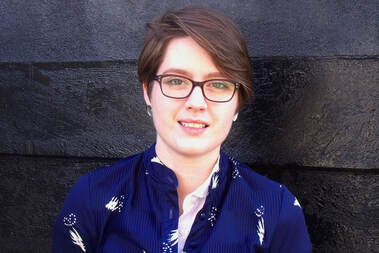 What is the name of the piece that you have in Grabbed? “Found: Chorus to a Girl” What was the inspiration for your piece? What compelled you to write it? I’d watched videos responding to street harassment that turned the focus back to the bodies of the harassers. I didn’t want to do that in writing and tried to find another way to record my own experience of harassment (in many spaces). The words themselves were ugly, so I wrote down what had been said to me and worked from there. Why did you choose this particular form or genre for this piece? The prose poem feels less vulnerable to me than a poem with line breaks. It throws everything together. I think it shows how harassment accumulates in one person, erasing the individual and creating a spectre. Can you speak to the evolution of writing your piece? How long did it take you to write this piece, including revision? I wrote the first draft in 2014! I messed with the form, title, and transitions off and on over the years, but I didn’t add or take away much. As a writer, do you feel obliged to share difficult experiences? Why? I try not to feel obliged. But I do tend to write about what I’m thinking, and difficult experiences aren’t easy to stop thinking about. What would you say to another writer who has been uncomfortable or silent about their experience? How can they begin to share their experiences? All poems are just for yourself until you share them. Write notes. Write crappy drafts. Remember that writing doesn’t have to be confessional if that’s weighing you down. Read The Descent of Alette and come back. Holly Mitchell is a queer poet from Kentucky, now living in New York. A winner of an Amy Award from Poets & Writers and a Gertrude Claytor Prize from the Academy of American Poets, Holly received an MFA in Creative Writing from New York University and has poems in Baltimore Review, Juked, and Narrative, among other journals. 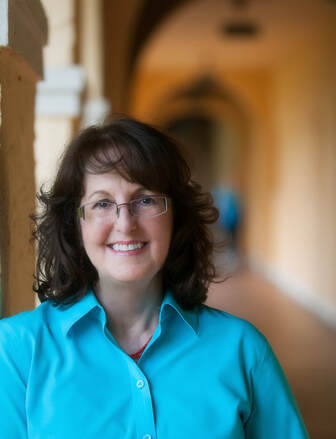 What was the inspiration for your piece? What compelled you to write it? I wrote “Cocoa Beach” about a frightening close call I had in my early 20s when a car full of men tried to abduct me. I never told anyone about it (not even my roommate that night) because I was deeply ashamed and thought it was my fault. I should not have dared to walk alone after dark, should not have assumed I had any right to safety as a woman. I tried to forget about the event, and when I read the poem now it seems almost as if it happened to someone else. I had come of age on an Air Force base in the California desert where it was so safe my girlfriends and I walked home from the teen center at midnight on Fridays and Saturdays. Rattlesnakes, not men, posed the only threat. Everything changed that night in Cocoa Beach. I realized in one blinding moment that I would never again be safe, that men would always hold the potential of danger, that I could never let my guard down. Why did you choose this particular form or genre for this piece? I’m a narrative poet, and it’s considered somewhat difficult to tell a story in a pantoum, but I like a challenge. I thought the form’s recurring lines and repetition could help me create the needed tension and allow me to fill in the story despite the fuzziness of many details decades later. It was painful to write because I experienced the fear again, but the puzzle-like challenge of the form itself provided the biggest obstacle. I revised it for about a year before I was satisfied, which is pretty fast for me. As a writer, do you feel obliged to share difficult experiences? Why? I don’t feel any obligation to write anything. I have found, though, that if I’m not tackling something I feel strongly about, I won’t have the stamina to work to perfect the poem and it will lack heart. So I try to be brave, go deep and be honest, no matter how painful it is. Otherwise, it’s not worth the effort. What would you say to another writer who has been uncomfortable or silent about their experience? How can they begin to share their experiences? I would encourage tentative writers to try not to worry about what anyone will think when they write, to turn off their internal censor, write the poem just for them and see where it takes them -- not every poem is successful anyway. If it’s strong, then they can decide if they should share it. It’s also useful to try “hiding” in a persona poem. Terry Godbey has published four poetry collections: Hold Still, finalist for the Main Street Rag Poetry Book Award; Beauty Lessons, winner of the Quercus Review Poetry Book Award; Behind Every Door, winner of the Slipstream Poetry Chapbook Contest; and Flame. A winner of the Rita Dove Poetry Award, she has published more than 150 poems in literary magazines and works as a freelance writer in Orlando, FL. Also a photographer, she wanders in woods and wetlands every chance she gets. See more of her writing and photos at www.terrygodbey.com. |
Grabbed BlogHave a blog idea for us? Submit it here. Archives
October 2020
Categories |
|
BUY GRABBED
|
If you or anyone you know is a victim of domestic violence, please call The National Domestic Violence Hotline: 1-800-799-7233 1-800-787-3224 (TTY) En Español: 1.800.799.7233 |
 RSS Feed
RSS Feed







